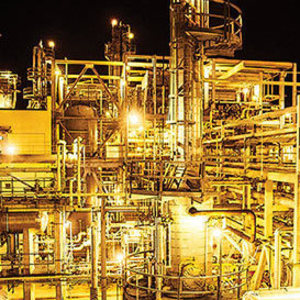Phillips 66, REG to build renewable diesel plant in Washington

Photo: Renewable Energy Group Inc.
November 1, 2018
BY Renewable Energy Group Inc.
Phillips 66 and Renewable Energy Group Inc. announced Nov. 1 that planning is underway for the construction of a large-scale renewable diesel plant on the U.S. West Coast.
The plant would utilize REG’s proprietary BioSynfining technology for the production of renewable diesel fuel. Planned feedstocks include a mix of waste fats, oils and greases, including regionally sourced vegetable oils, animal fats and used cooking oil.
Advertisement
“REG is excited to be working with a leading refiner, Phillips 66, on a project that has the potential to significantly expand biofuel production in Washington State and provide low carbon fuel markets with products that are in significant demand on the West Coast,” said Randy Howard, CEO of REG. “We look forward to working with state and local stakeholders to facilitate development of this important project and increase the supply of low carbon fuels in the region.”
The new facility would be constructed adjacent to the Phillips 66 Ferndale Refinery in Washington State. The Ferndale Refinery offers existing infrastructure, including tank storage, a dock, and rail and truck rack access.
Advertisement
“The proposed facility’s strategic location in Washington State would enable us to move renewable fuels more efficiently to support West Coast and international fuel market demand,” said Brian Mandell, a senior vice president with Phillips 66. “We continually look for opportunities to provide our customers with a reliable source of innovative renewable fuels.”
This announcement follows more than a year of collaboration between Phillips 66 and REG related to site selection and preliminary engineering. The companies expect to make a final investment decision in 2019. If approved, production at the new facility is currently premised to start in 2021.
REG owns and operates 13 biomass-based diesel refineries, with a combined effective production capacity of 565 million gallons per year. This includes REG Geismar, a 75 MMgy plant located in Louisiana that was the first renewable diesel plant built in North America. REG’s 100 MMgy REG Grays Harbor biodiesel plant, the largest biorefinery in the REG fleet, is also located in Washington State.
Related Stories
The U.S. Energy Information Administration maintained its forecast for 2025 and 2026 biodiesel, renewable diesel and sustainable aviation fuel (SAF) production in its latest Short-Term Energy Outlook, released July 8.
XCF Global Inc. on July 10 shared its strategic plan to invest close to $1 billion in developing a network of SAF production facilities, expanding its U.S. footprint, and advancing its international growth strategy.
U.S. fuel ethanol capacity fell slightly in April, while biodiesel and renewable diesel capacity held steady, according to data released by the U.S. EIA on June 30. Feedstock consumption was down when compared to the previous month.
XCF Global Inc. on July 8 provided a production update on its flagship New Rise Reno facility, underscoring that the plant has successfully produced SAF, renewable diesel, and renewable naphtha during its initial ramp-up.
The USDA’s Risk Management Agency is implementing multiple changes to the Camelina pilot insurance program for the 2026 and succeeding crop years. The changes will expand coverage options and provide greater flexibility for producers.
Upcoming Events










